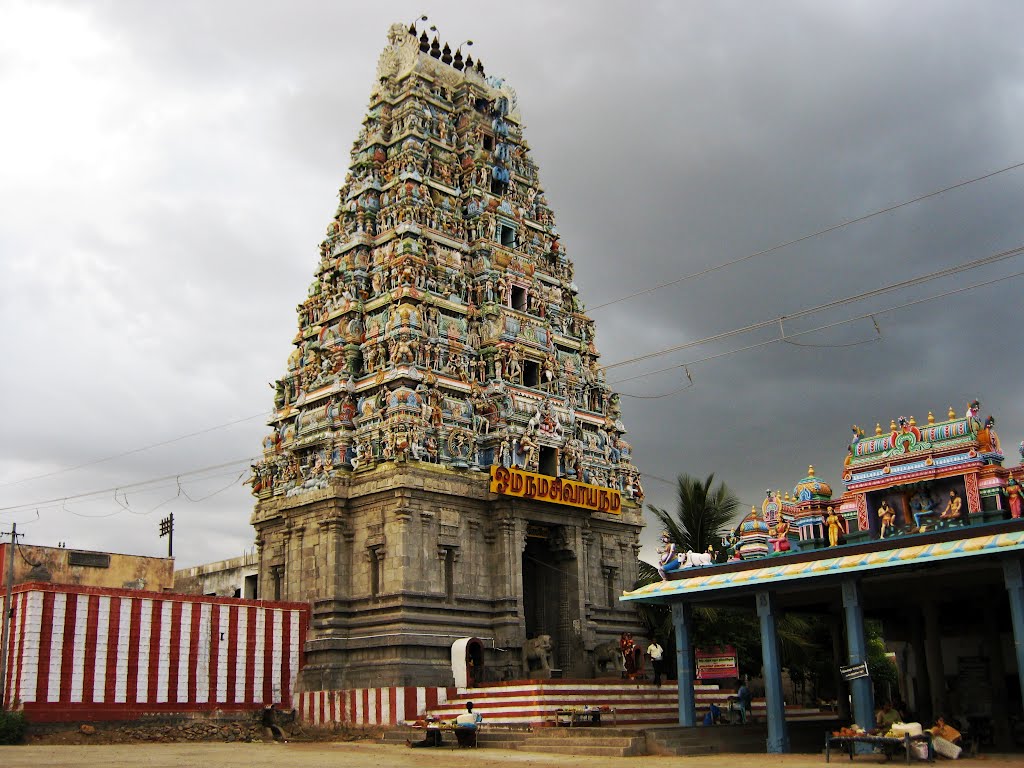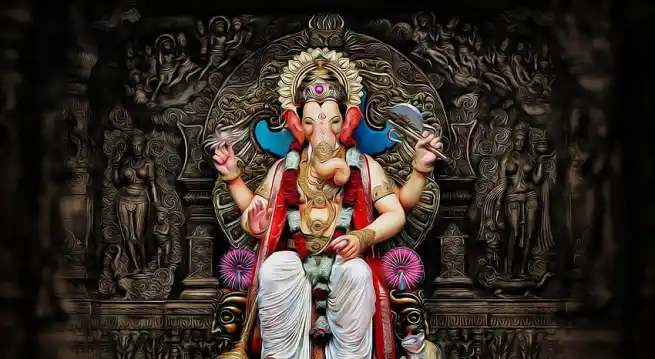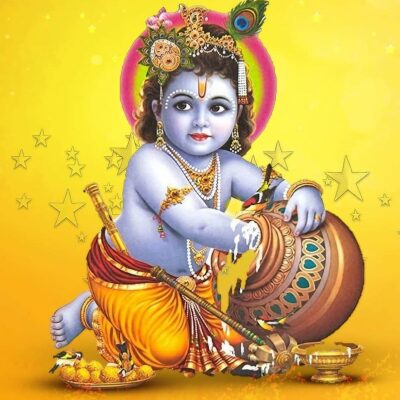Belur Sri Thanthondreeswarar Temple, Salem

Address
Belur Sri Thanthondreeswarar Temple, Belur, Salem District- 63 61 04 Tamilnadu, India Phone: +91- 98658 09768, 9787709742
Deity
Sri Thanthondreeswarar Amman: Dharmasamvarthini.
Introduction
- Location: The Sri Thanthondreeswarar Temple is situated in Belur, Tamil Nadu, on the banks of the Vasishta Nadi (Vasishta River). It is surrounded by scenic hillocks, creating a peaceful atmosphere.
- History: Built by the Cholas in the 12th century AD, this temple reflects Dravidian architecture and Chola influence. The presiding deity is Lord Thanthondreeswarar (Lord Shiva), and the female deity is Goddess Dharmasamvarthini. The temple is managed by the Hindu Religious Charitable Endowment Department.
Puranic Significance
- Story of Milagu Chetty:
- According to legend, a pepper merchant named Manickam Chetty (later known as Milagu Chetty) discovered the Swayambu Lingam (self-manifested Shiva Lingam) while resting in the forest. A mystical incident involving the transformation of pepper into black gram led him to build the inner sanctum of the temple.
- The rest of the temple, including the construction of the Rajagopuram (temple tower), was initiated by King Paranthaka Chola during the 12th century but remained incomplete.
- The temple is closely associated with the Brahmanda Purana, where Sage Sudamuni narrated the glory of Lord Shiva and the temple’s significance.
- Vasishta’s Yajna:
- Sage Vasishta is believed to have stayed at the temple site and performed a yajna (sacred fire ritual). The yajna ash produced is still distributed as Vibhuti (sacred ash), which devotees believe brings prosperity.
- Historical Legend:
- It is also believed that Arjuna from the Mahabharata visited the nearby Theerthamalai and worshipped Lord Shiva here. Lord Shiva, pleased with Arjuna’s devotion, allowed a portion of the Ganga water to flow as Vellaru (White River).
Special Features
- Mango-Jack-Iluppai Tree: One of the most unique features of the temple is a tree that bears Mango, Jackfruit, and Iluppai fruits on the same tree, believed to have been planted by Sage Vasishta for Lord Shiva’s worship.
- Sunlight on Deity: Every year, from Chithirai 3 to 10 (April-May), the rays of the sun directly fall on the Swayambu Lingam, showcasing the temple’s architectural marvel.
- Sculptural Features:
- The temple has intricate carvings, including a horse vahanam (mount) sculpture made from a single stone.
- A mythical lion statue, known as Yazhi, is also carved from a single stone, with a rolling ball inside its mouth, located on two pillars.
- Another unique feature is a sculpture of Lord Shiva riding a vedhic horse.
- Rajagopuram: The temple’s majestic Rajagopuram (temple tower) is 97 feet tall with seven stages. It was consecrated in a Kumbabishekam ceremony on February 24, 2002.
- Planet Sani Bhagwan: The temple also houses a shrine dedicated to Sani Bhagwan under a Vanni tree.
Festivals
The temple celebrates several important festivals:
- Aadi 18 (July-August).
- Karthikai (November-December).
- Pradosham and New Moon Days (Amavasya) every month.
Century/Period/Age
12th century AD.
Managed By
Hindu Religious and Charitable Endowments (HRCE)
Nearest Bus Station
Vazhapadi
Nearest Railway Station
Belur
Nearest Airport
Trichy









